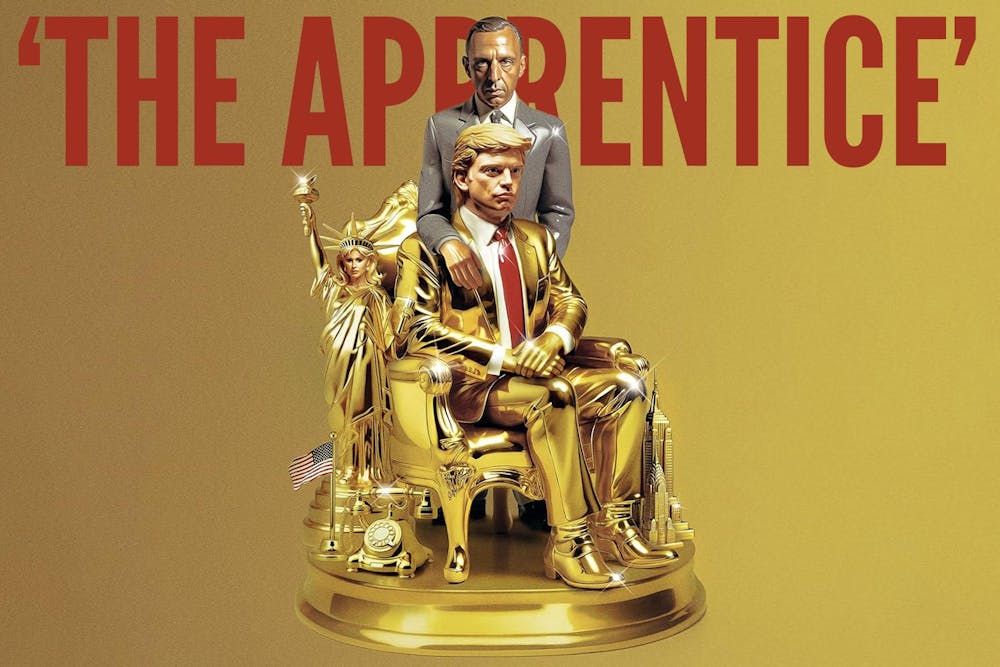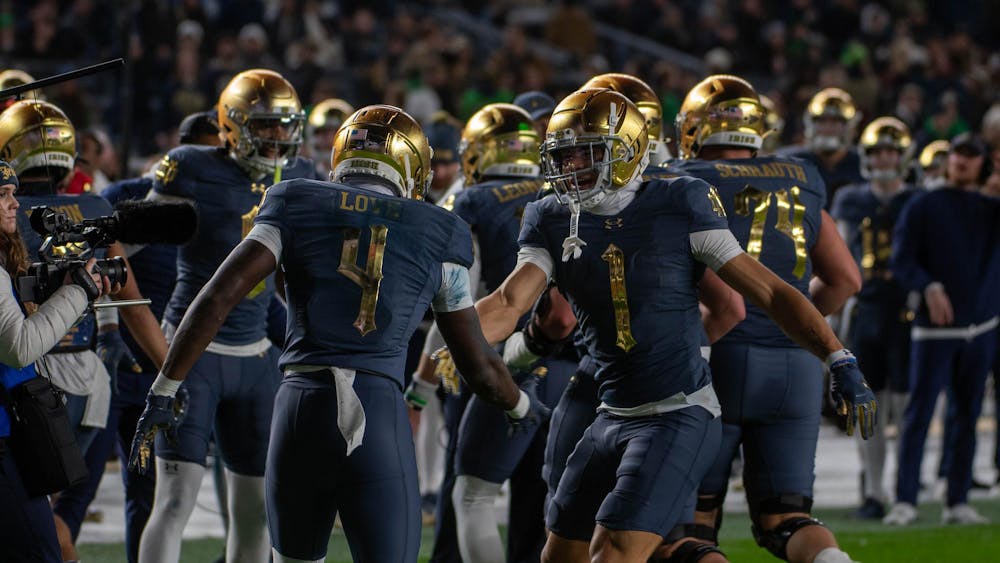“Who wants to watch ‘The Apprentice’?,” and the crowd goes silent. This movie appeals to virtually nobody. For Donald Trump supporters, it seems far too critical of their beloved leader; for Trump haters, it seems far too sympathetic towards their supreme villain; and for everyone in between, they’re just exhausted by the nonstop coverage of him for the past eight years and have no interest in seeing a movie dramatize his life. However, this Scene correspondent defies rigid categorization and was actually excited to see the film. I hoped it would have some insights about Trump beyond the headlines and superficial discourse. And with “The Apprentice,” what I found was a trenchant and enthralling tale of a mentorship gone completely awry, bolstered by two incredible lead performances.
The film opens in the early 1970s with a fledgling Donald Trump (Sebastian Stan) trying to help the Trump Organization overcome a lawsuit alleging racial discrimination. Stan plays this era of Trump’s life with a charming insecurity. He’s ambitious and eager to prove himself to the world, knowing that they view him as a worthless heir to his crummy slumlord father. His grand vision for a revitalization of New York City is repeatedly dismissed as ludicrous, yet he ultimately brings it to life in the following years. The film also frequently emphasizes Trump’s puritanical tendencies, like his teetotalism and discomfort at salacious parties. But he soon meets Roy Cohn (Jeremy Strong), an infamous attorney who becomes his mentor. Strong gives a riveting performance, depicting Cohn as a soulless vampire purely animated by evil. His frequent countenance is a blank stare that’s still immensely predatorial, as if he’s unamused by how easily he could eviscerate you. Cohn instills in Trump his vicious, brutal worldview of steamrolling others and doing whatever it takes to win. There’s also a humorous homoerotic undercurrent to their relationship; Cohn frequently admires Trump’s looks, and Trump fawns for Cohn’s approval constantly. Regardless, Cohn proves the effectiveness of his tactics when he helps Trump beat the lawsuit by blackmailing the lead prosecutor. Furthermore, he facilitates Trump's Commodore Hotel deal that catapults his career as a real estate mogul.
From here, Trump becomes the cruel, domineering, braggadocious tabloid icon that most people recognize him as. Stan handles this corruption adeptly, gradually incorporating more and more Trumpisms into his performance. His tenderness and sincerity from the first half are replaced by belligerence and vanity. Not only has he been corrupted by Cohn’s worldview but also by the political cronyism and unfettered capitalism in America that continuously underpin his ascendancy. His and Cohn’s relationship dynamic reverses as Cohn becomes dependent on Trump due to his own fall in stature. However, Trump has fully mutated into an avaricious, uncaring monster by this point and disregards Cohn. Strong somehow manages to make you sympathize with Cohn after just previously convincing you he was the devil, for he effectively sells the loneliness and pain felt from Trump’s betrayal. Cohn might have been evil incarnate, but you get the impression he genuinely cared about Trump. Conversely, you’re left wondering at the end of the film if Trump has ever cared about anyone but himself. He is a cipher, fully becoming a persona built on posturing and bravado that suppresses what little is left of his humanity. Most of the film’s dramatic power comes from these two characters’ fascinating relationship and seeing how the apprentice not only usurps the mentor but becomes something horrifyingly unreal. It’s a potent prism to analyze Trump’s life, and the two fantastic lead performances help deliver the thesis.
The film’s direction is also sleek and mature: the costume and set design convincingly evoke the time period, the use of 16mm for the first half and analog for the second half feels very inspired and the tone smoothly oscillates between black comedy and Greek tragedy. The pacing is also very snappy and briskly progresses through a large span of Trump’s life without feeling overly truncated. Director Ali Abbasi’s resolute vision helps steer the film through it's many layers and developments. It's evident he wasn’t worried about strictly pleasing partisan cheerleaders and instead had a clear story about Trump's life he wanted to tell. He paints a portrait of him that is both admirable and despicable; in other words, it’s an immensely human film.
“The Apprentice” takes a nuanced approach to a frequently sensationalized subject, extracting humanity and empathy from the same characters it imbues with acute evil. In doing so, it crafts a rich narrative whose stylish presentation and masterclass performances make for a great film — even one that I believe the most Trump-weary audiences should still consider seeing.










